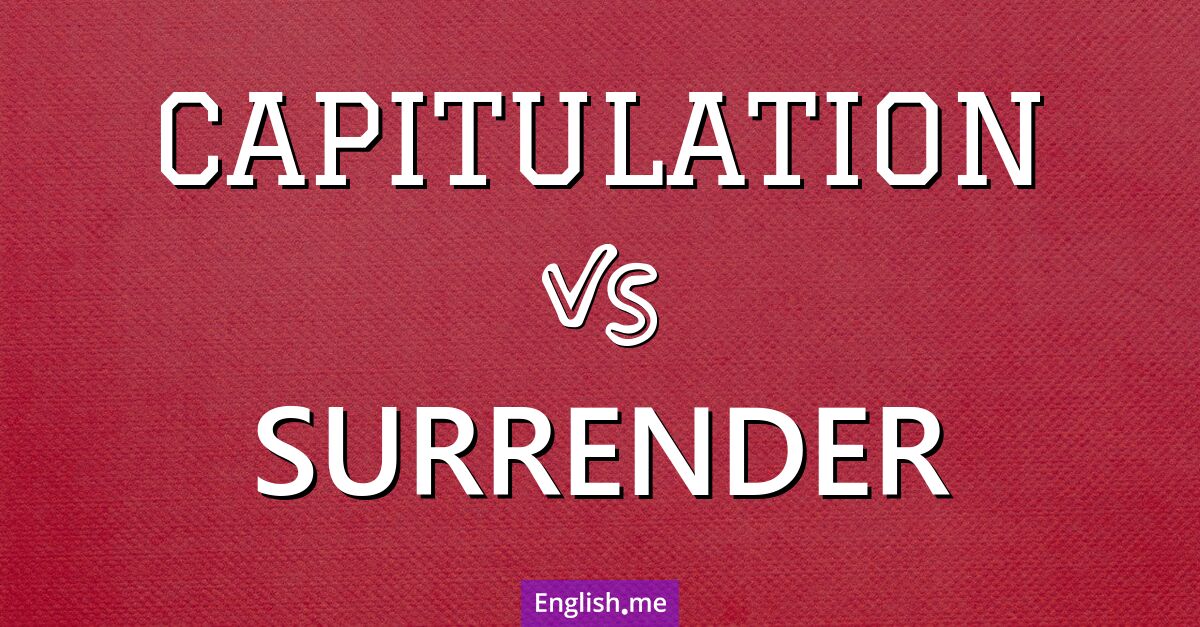Key distinctions between "capitulation" and "surrender"
Reviewed and edited by  Anwar Kareem 26/10/2024, 19:30
Anwar Kareem 26/10/2024, 19:30
English.me team member

 What is similar?
What is similar?
Both "capitulation" and "surrender" refer to the act of yielding or submitting to an opponent or a demand. They both can imply giving up or conceding defeat, often in the context of a conflict, competition, or negotiation.
 What is different?
What is different?
"Capitulation" typically involves a formal agreement and can imply a more comprehensive or total submission, often involving specific terms or conditions. "Surrender" is a broader term that can refer to giving up or yielding in a variety of contexts and does not necessarily imply a formal agreement. "Surrender" can also be used more broadly in non-conflict settings, such as "surrendering to one's emotions."
 Which one is more common?
Which one is more common?

 Examples of usage
Examples of usage
Capitulation- The general signed the capitulation, ending the months-long siege.
- Negotiations ended in capitulation, with the company agreeing to the merger.
- Capitulation seemed inevitable as the defending army was outnumbered and surrounded.
- After a long battle, the soldiers decided to surrender to the enemy.
- The rebels were forced to surrender after running out of supplies.
- She felt a sense of peace after finally surrendering to her emotions.

 English
English español
español française
française italiano
italiano deutsche
deutsche 日本語
日本語 polski
polski česky
česky svenska
svenska Türkçe
Türkçe Nederlands
Nederlands